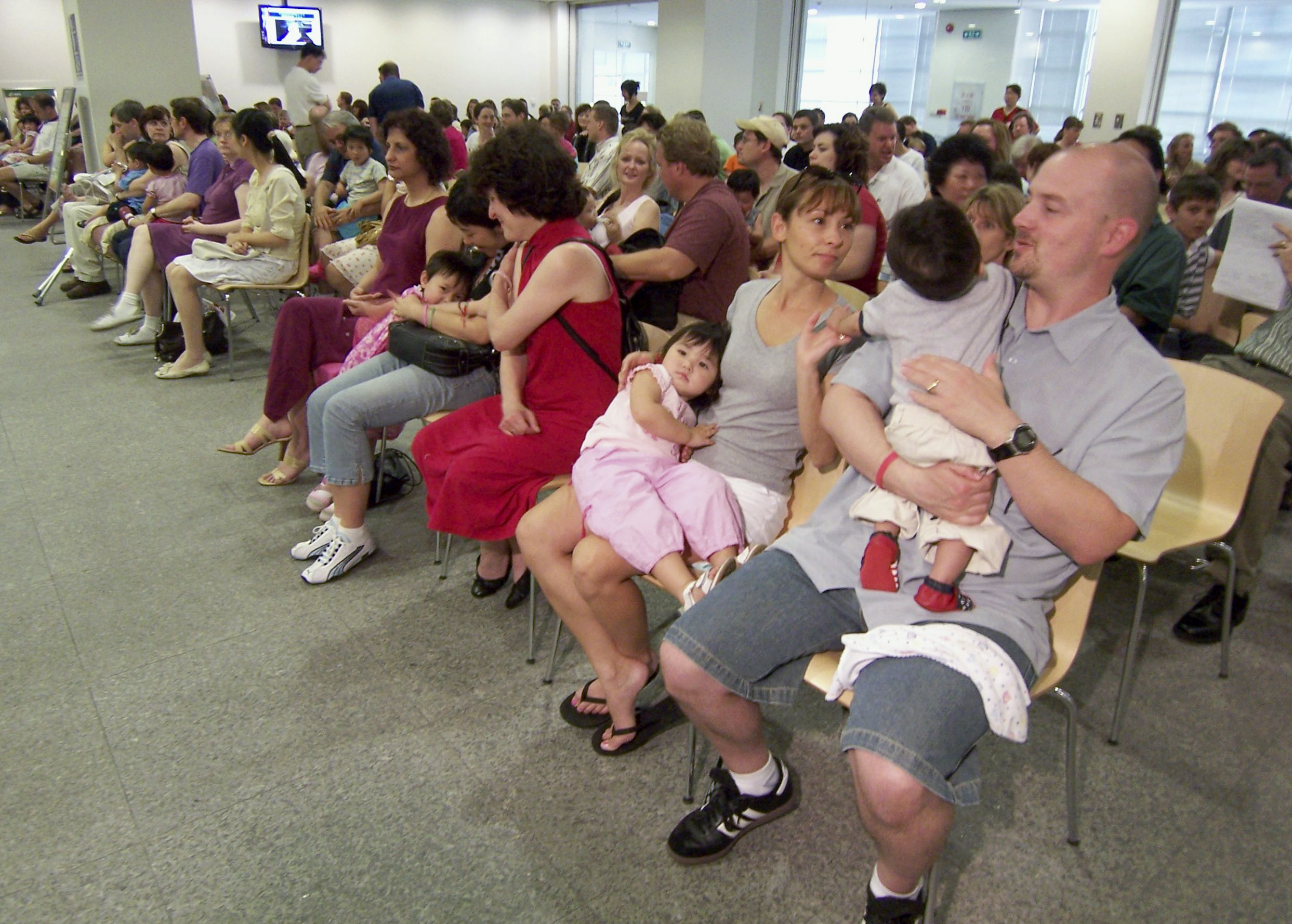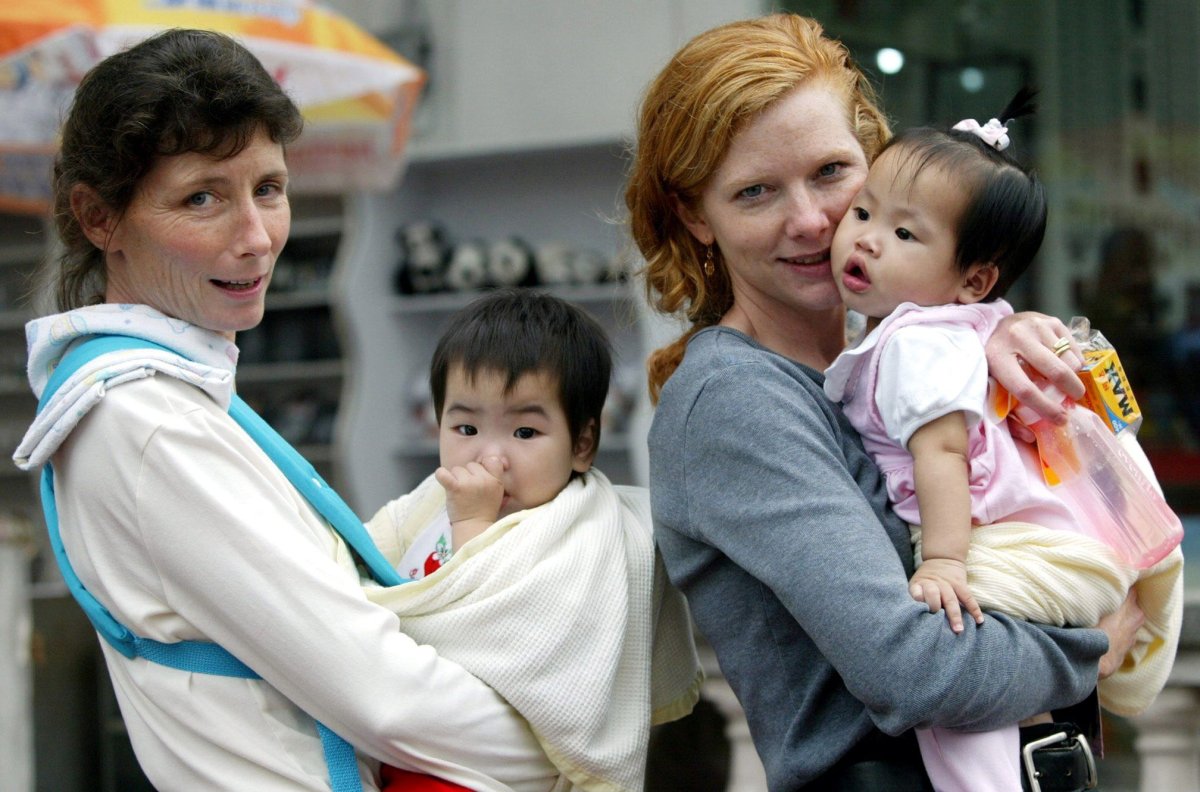
In an unprecedented trend for the U.S., more male children were adopted from other countries than female children by the end of 2016, Pew Research found.
This trend is largely caused by a change in patterns of adoption in China—a country from which many children are adopted. In 1999, 98 percent of children adopted from China to the U.S. were girls. In 2016, boys accounted for the majority of Chinese adoptees for the first time, albeit only 51 percent.
This change has nothing to do with more Americans wanting boys. China has recently gotten far less strict about the one-child policy, which previously limited most families in China to one child each in order to slow the rate at which China's population was growing. When the measure was in full effect, Chinese girls were put up for adoption in much larger numbers, according to an NPR report.

A decade ago, the adoptee pool in China used to be made up of mostly infant girls. Today, the numbers of male and female children put up for adoption are just about equal, the U.S. Department of State reports. The adoptee pool is also now significantly made up of older children and children who have special needs.
The demographic shifts are in large part a result of China's strengthening economy, as well as efforts to advocate for domestic adoption.
According to Pew Research, adoptees from China accounted for 42 percent of international adoptees in America in 2016. As a result, China has created a worldwide shift in adoptee gender across children adopted internationally to the U.S. In 2016, international adoptees were 52 percent male and 48 percent female.
However, the number of children adopted from abroad has been declining since 2004. A report from the Children's Bureau shows that within the 2016 fiscal year, approximately 5,730 children were adopted by Americans. This was 77 percent fewer than the number in 2004, a year that saw a peak in these adoptions.
This decrease occurred because adoptions have dropped in the five nations from which many international adoptees hail: China, Russia, Guatemala, South Korea and Ethiopia. These countries combined have made up 71 percent of America's overseas adoptions since 1999.

Pew Research states that the alterations in these countries' adoption policies have played a large role in global trends. In late 2007, the Guatemalan government placed a suspension on new adoptions from Guatemala after corruption and fraud were reported in the country's adoption system, according to NPR.
Since 2013, Russia banned the adoption of Russian children by Americans due to a political conflict, TIME reported. The U.S. Department of State shows that Ethiopia and South Korea have intensified their general adoption laws, as has China, according to The New York Times. In April, Ethiopia's government placed a suspension on international adoptions as a whole.
Americans may be adopting fewer children from other countries, but the U.S. is still the nation that adopts the greatest number of children from abroad, Pew Research states. In addition to adopting children internationally, the U.S. also serves as an oft-visited source for adoptees of families in other countries.
Uncommon Knowledge
Newsweek is committed to challenging conventional wisdom and finding connections in the search for common ground.
Newsweek is committed to challenging conventional wisdom and finding connections in the search for common ground.
About the writer
Zola Ray is an Editorial Assistant for Newsweek. Her writing has also been featured on Hello Giggles, Bustle, For Harriet and ... Read more
To read how Newsweek uses AI as a newsroom tool, Click here.








